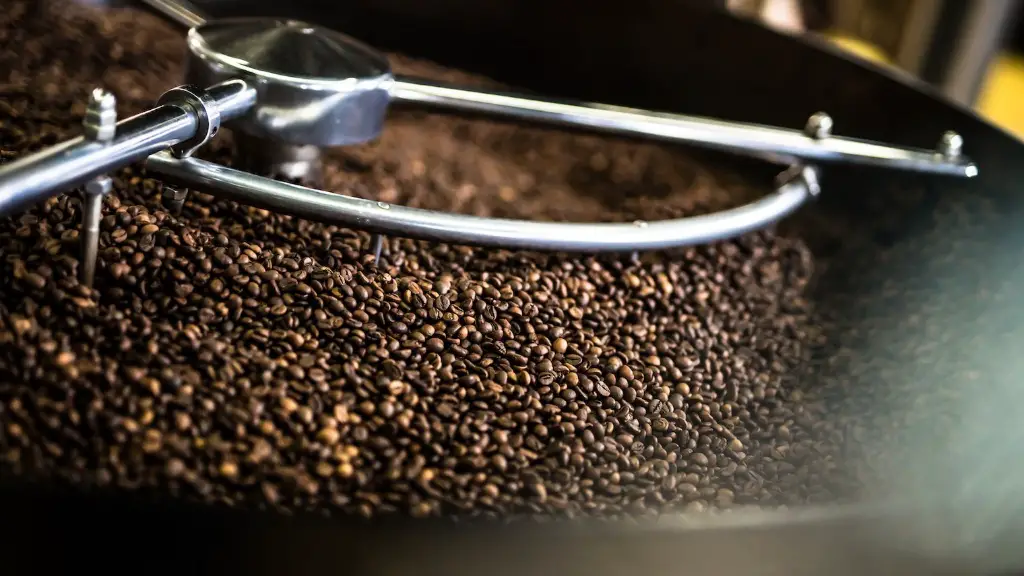Should I drink coffee if my stomach hurts? The answer to this question is a complex one, as there are various factors to consider. An individual’s health status and the cause and severity of their stomach pain must be taken into account before making any decisions. This article explains why drinking coffee while dealing with stomach pain may or may not be beneficial.
Firstly, it is important to consider what coffee is and how it could affect the stomach. Coffee is a brewed beverage, made from roasted coffee beans and containing the stimulant caffeine. It is known for increasing alertness and energy, and it may also temporarily help reduce feelings of fatigue and headaches. Consumed in large amounts, however, caffeine could be dangerous for health. It is important to note that coffee can also aggravate existing digestive discomfort, as it increases stomach acid production and can cause stomach irritation.
It is important to determine the cause and severity of the stomach pain before making any decisions. If the stomach pain is caused by an underlying medical condition such as gastroesophageal reflux disease (GERD), drinking coffee is not recommended due to its acidity. In addition, drinking coffee could make the symptoms worse and lead to nausea, vomiting, and diarrhea. On the other hand, if the stomach pain is caused by something less serious, such as intestinal bloating or indigestion, it may be beneficial to drink coffee, as it can provide relief from symptoms such as cramping and nausea.
Another factor to consider when it comes to drinking coffee is how much of it is consumed. Generally, it is recommended to drink no more than two cups of coffee a day, as excessive amounts of caffeine can cause dehydration, as well as anxiety and irritability. In addition, drinking too much coffee can cause an increase in stomach acid production and make stomach discomfort worse. It is also important to note that different types of coffee vary in their caffeine and acidity levels, so it is important to choose wisely.
It is also important to note that coffee isn’t the only beverage that has the potential to cause stomach discomfort – other caffeinated drinks, such as energy drinks, tea, and soft drinks, can have similar effects. For this reason, it is important to limit the amount of caffeinated beverages consumed, regardless of whether the stomach pain is due to an underlying medical condition or something less serious.
In conclusion, there are a variety of factors to consider when deciding whether or not to drink coffee if the stomach hurts. The cause and severity of the stomach pain should be taken into account, as well as the type and amount of coffee consumed. It is important to note that other caffeinated beverages can also cause similar stomach problems, so it is important to be mindful of the types and amounts of beverages consumed.
Caffeinated Beverages
Caffeinated beverages, such as coffee and energy drinks, are a popular way to wake up in the morning and to stay alert throughout the day. However, when it comes to consuming caffeine, it is important to be mindful of the type and amount. Different beverages have different levels of caffeine and acidity, so it is important to choose wisely when deciding what type of beverage to consume.
In addition to caffeinated beverages, many people turn to herbal teas as an alternative way to get a boost of energy. Herbal teas are naturally caffeine-free and are typically safe for consumption, as they are generally low in acidity. However, some people may experience mild stomach discomfort or nausea after consuming herbal teas, so it is important to be aware of any potential side-effects.
Moderation
Before drinking coffee or any other type of caffeinated beverage, it is important to make sure that only a moderate amount is consumed. Drinking more than two cups of coffee per day can result in dehydration, anxiety, and irritability. In addition, drinking too much coffee can make stomach discomfort worse, as it increases stomach acid production.
In addition to limiting the amount of caffeinated beverages consumed, it is important to be aware of any underlying medical conditions that could be exacerbated by caffeine consumption. If there is an underlying condition such as GERD, it is highly recommended to avoid drinking coffee or other caffeinated beverages altogether.
Finally, it is important to listen to the body’s own signs and symptoms when deciding whether or not to drink coffee. If drinking coffee results in nausea, vomiting, or abdominal pain, then it is best to avoid it and opt for a caffeine-free beverage or herbal tea instead.
Health Benefits
Despite the potential drawbacks of drinking coffee, it does possess some health benefits. Studies have found that drinking coffee can help protect against heart disease, diabetes, cancer, depression, and other illnesses. In addition, coffee can help to boost energy levels and concentration. Additionally, coffee can help to reduce inflammation, improve memory and concentration, and even reduce the risk of certain types of cancer.
When drinking coffee, however, it is important to remember to keep it to a moderate amount. Excessive amounts of caffeine can lead to headaches, anxiety, and restlessness. Additionally, drinking too much coffee can result in an increased risk of developing certain types of cancer and other serious health conditions.
Conclusion
Whether or not to drink coffee if the stomach hurts is a complex question and should be considered on a case-by-case basis. It is important to consider the cause and severity of the stomach discomfort and to be mindful of the type and amount of coffee being consumed. Other caffeinated beverages should also be avoided if the stomach discomfort is due to an underlying medical condition. Finally, it is important to listen to the body’s own signs and symptoms and to seek medical advice if the pain persists.




